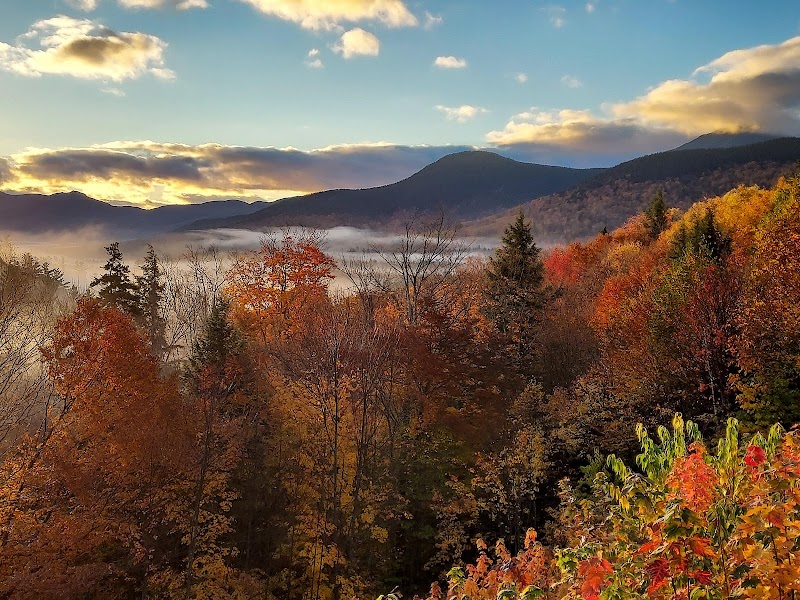
Your Practical Guide to Guided Outdoor Adventures with White Mountain Adventure Sports in Littleton, New Hampshire
Experience the rugged beauty of New Hampshire’s White Mountains with White Mountain Adventure Sports in Littleton. This guide offers clear distances, elevation details, and preparation tips that empower both new hikers and seasoned adventurers to safely explore scenic trails under expert guidance.
Adventure Tips
Hydrate Well Before and During Your Hike
Plan on drinking at least 2 liters of water per person on moderate hikes, as mountain streams are not reliably safe to drink without treatment.
Wear Layered Clothing
Temperatures can shift quickly at elevation; wear moisture-wicking layers that can be added or removed as conditions change.
Choose Footwear with Good Traction
Expect rocky, occasionally slippery terrain; hiking boots with solid ankle support and grippy soles reduce injury risk.
Start Early to Avoid Afternoon Weather
Mountain weather often turns quickly in afternoons, especially in summer. Begin your hike before sunrise or early morning to maximize safer daylight hours.
Your Practical Guide to Guided Outdoor Adventures with White Mountain Adventure Sports in Littleton, New Hampshire
Discover an outdoors experience with White Mountain Adventure Sports in Littleton, New Hampshire, where guided hikes and activities let you engage with the rugged dynamics of the White Mountains without losing your way. Each excursion ranges from moderate to challenging, with distances spanning 4 to 8 miles and elevation gains climbing 1,000 to 2,500 feet, providing a clear measure of what to expect before you lace up your boots.
Venture onto forested trails where ancient pines stand firm, their needles brushing past your shoulders as sunlight filters in jagged patches. Streams rush nearby, daring you to match their steady pace and reminding you nature is alive around every bend. Your guide navigates each terrain firm-footed and informed, helping you respect the mountain’s rhythm while unlocking lesser-seen corners often missed on solo trips.
Whether targeting a crisp morning ascent or an afternoon finale beneath sweeping summit views, timing shapes your experience here. Early starts help dodge afternoon storms common in summer, while autumn’s cooler air sharpens your senses as leaves color the slopes.
Practical preparation is key. Bring layered clothing to adjust quickly, footwear with reliable tread to handle loose rocks and damp ground, and at least 2 liters of water, as streams are enchanting but unfiltered. Your guide will share local knowledge on trail safety, wildlife encounters, and the geology giving these mountains their sturdy presence.
White Mountain Adventure Sports excels at creating inclusive atmospheres, welcoming newcomers and seasoned hikers alike. The pace is steady but not forced, fostering a connection with the outdoors that respects its unpredictable nature. You’ll leave with more than photographs—you’ll carry firsthand insight into NH’s peak country, practical skills, and a clear sense of your own limits and strengths.
Littleton supports this gateway beautifully, with easy access from I-93 and accommodations that bridge comfort and rustic charm. All told, White Mountain Adventure Sports invites you beyond the familiar into a wildness that challenges and fuels—fiercely true and simply waiting.
Adventure isn’t about conquering; it’s about listening and moving forward alongside a landscape that demands your full respect and curiosity.
Nearby Trips
All Adventures
Boat Charters
Water Activities
Adventures near Littleton, New Hampshire
Discover the unique and memorable adventures that make Littleton, New Hampshire special.
Frequently Asked Questions
Are the trails suitable for beginners?
White Mountain Adventure Sports offers hikes ranging from beginner-friendly to more challenging routes. Guided hikes are paced to match participant skill and comfort, making them accessible to new hikers with basic fitness.
What wildlife might I encounter during a hike?
Expect to see white-tailed deer, red squirrels, various songbirds, and occasionally black bears. Guides provide safety tips for respectful wildlife observation and minimizing disturbance.
Is it necessary to book guided tours in advance?
Booking ahead is highly recommended, especially in peak seasons like summer and fall, to ensure availability and receive tailored guidance based on current trail conditions.
What makes guided hikes safer than going solo in this area?
Guided hikes reduce risks with expert route knowledge, real-time weather assessment, and group coordination, significantly decreasing chances of getting lost or caught unprepared.
Are pets allowed on these guided hikes?
Most guided hikes do not allow pets due to trail difficulty and wildlife considerations; check with White Mountain Adventure Sports for specific tour policies.
What environmental practices do the guides follow?
Guides strictly adhere to Leave No Trace principles, encouraging minimal impact, waste pack-out, and educating visitors on preserving sensitive mountain ecosystems.
Recommended Gear
Supportive Hiking Boots
Essential for protecting ankles and providing grip over rocky or slippery terrain.
Layered Clothing System
Adjustable layers help respond to temperature shifts and weather changes throughout the day.
Hydration Pack or Bottles
Staying hydrated is critical, especially since natural water sources may not be safe to drink untreated.
Trekking Poles
Optional but recommended for stability on uneven or steep sections, especially during descent.
Local Insights
Hidden Gems
- "The Lover’s Leap viewpoint offers less crowded panoramic views of the Franconia Ridge."
- "A small waterfall off the main trail near the Ammonoosuc River offers a quiet spot for reflection."
Wildlife
- "Keep an eye out for the elusive New England cottontail and migratory warblers during spring hikes."
History
"Littleton was historically a logging and railroad hub, and some trails pass remnants of these industries, including old rail beds repurposed as hiking paths."
